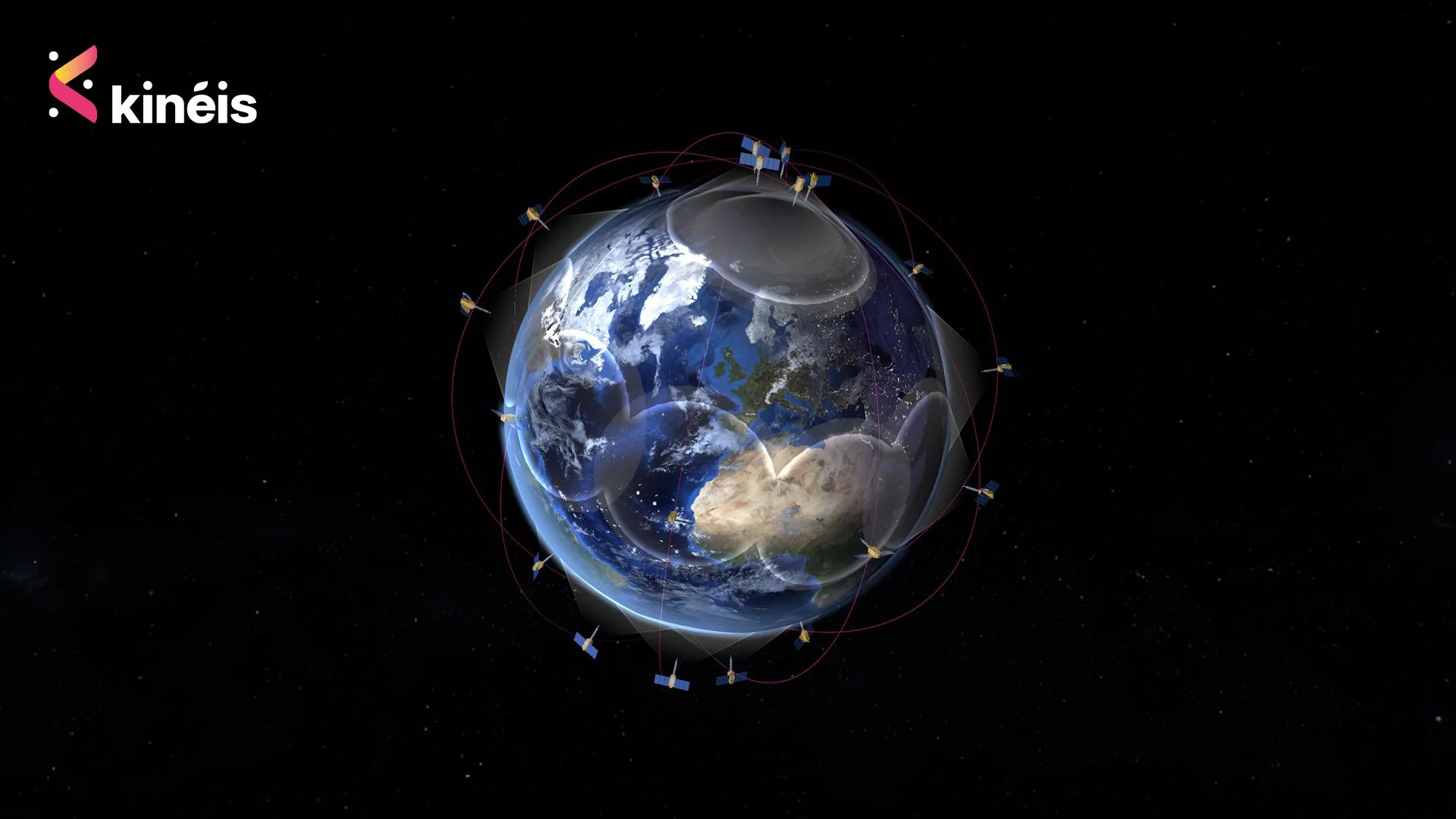Dryad Networks and Kinéis Partner for Satellite-Enabled Wildfire Early Detection
Dryad Networks, a leader in ultra-early wildfire detection and forest monitoring, today announced a strategic partnership with Kinéis, a French satellite operator and global connectivity provider for the Internet of Things (IoT). This collaboration will integrate Kinéis’s direct-to-satellite capabilities into Dryad’s next-generation Silvanet wildfire sensors, opening up groundbreaking new deployment possibilities.
Dryad’s solar-powered gas sensors, equipped with AI, monitor and detect early signs of wildfires by analyzing air quality and identifying unique gas patterns indicative of fires. When integrated with Kinéis’ satellite constellation, this network will overcome terrestrial limitations, ensuring near real-time global connectivity.
This synergy enables the early detection of wildfires even in remote areas without terrestrial network coverage, sending critical alerts to authorities via Kinéis’ 25 satellites, thus greatly enhancing emergency response capabilities and aiding in the preservation of natural areas and protection of critical infrastructure.
Protecting Critical Linear Infrastructure
Power line and rail companies face unique wildfire risks due to their linear assets spanning vast, remote areas. Previously, deploying comprehensive sensor coverage in these scenarios could be challenging due to limitations in terrestrial network coverage. Dryad’s integration of Kineis’s satellite technology addresses this challenge, enabling a simplified and cost-efficient direct sensor-to-satellite communication for unparalleled wildfire detection and prevention along critical corridors.
In particular, installations for linear infrastructure such as powerlines or railways, or in difficult terrain such as mountainous regions will benefit from direct-to-satellite connectivity. With a significantly simplified installation, Silvanet wildfire sensors will become even more cost-effective. Direct-to-satellite connectivity ensures continuous, reliable detection in remote areas, crucial for wildfire mitigation efforts.
When deployed in combination with the Silvanet LoRaWAN Mesh Gateways, which provide additional capabilities, Kinéis’ space IoT connectivity will guarantee uninterrupted service even if terrestrial connectivity is disrupted or sensors are placed outside of the range of gateways. Dryad and Kinéis aim to deploy hundreds of thousands of these IoT terminals worldwide over the next three years.
A Shared Vision for Environmental Protection
Both Dryad and Kinéis have established themselves as leaders in the IoT landscape. Kinéis offers extensive expertise in satellite-based IoT solutions, providing critical insights for environmental protection and ecosystem management, including early fire detection. Meanwhile, Dryad Networks is rapidly expanding its presence in the field of wildfire detection with its innovative sensor network technology.
The companies’ technologies are built on compatible satellite IoT protocols, ensuring seamless integration. Leveraging Semtech’s advanced chipsets, which combine terrestrial LoRaWAN and Kinéis’s satellite connectivity into a single solution, this integration ensures users can deploy products with both terrestrial LPWAN and satellite connectivity. The first products based on this integration are expected to be available before the end of the year.
Carsten Brinkschulte, CEO of Dryad Networks said: ‘‘We are excited to collaborate with Kinéis, as this partnership not only broadens our technological capabilities but also aligns with our mission to provide comprehensive wildfire protection. Integrating Kinéis’s satellite technology with our Silvanet sensors adds a vital layer to our detection ecosystem, especially for linear infrastructure, while reinforcing our commitment to the LoRaWAN mesh networks.’’
Alexandre Tisserant, CEO of Kinéis said: “Dryad Networks is at the forefront of ultra-early fire detection, making them the ideal partner for this expansion. By combining our satellite capabilities with Dryad’s innovative sensors, we are creating a truly global, adaptable solution to fight the growing threat of wildfires all over the world.”
